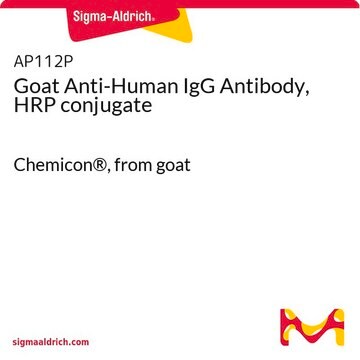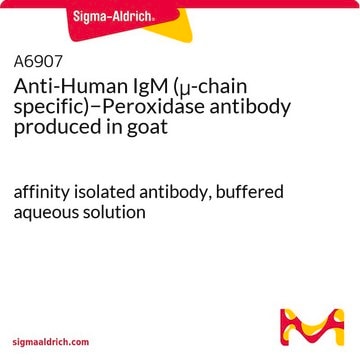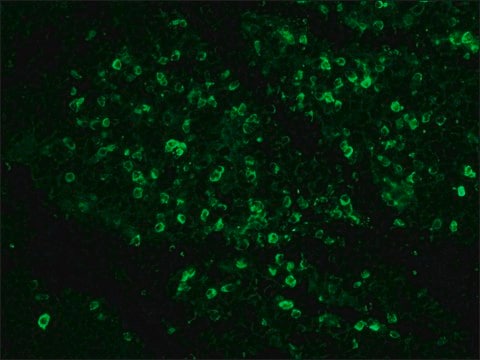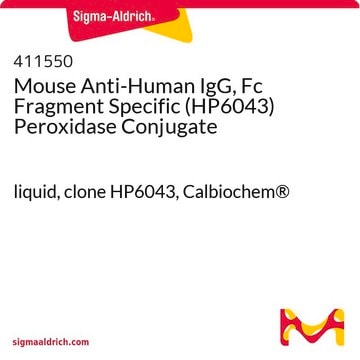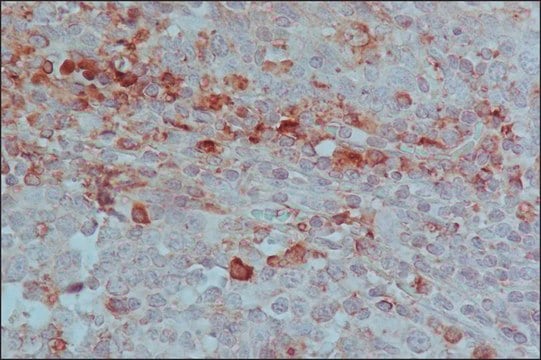A8792
Anti-Human IgG (whole molecule)−Peroxidase antibody produced in rabbit
IgG fraction of antiserum, buffered aqueous solution
Synonym(s):
HRP Rabbit Anti-Human IgG (whole molecule)
About This Item
Recommended Products
biological source
rabbit
conjugate
peroxidase conjugate
antibody form
IgG fraction of antiserum
antibody product type
secondary antibodies
clone
polyclonal
form
buffered aqueous solution
species reactivity
human
technique(s)
direct ELISA: 1:40,000
dot blot: 1:80,000 (chemiluminescent)
immunohistochemistry (formalin-fixed, paraffin-embedded sections): 1:150
shipped in
dry ice
storage temp.
−20°C
target post-translational modification
unmodified
Related Categories
General description
Specificity
Immunogen
Application
enzyme-linked immunosorbent assay (ELISA)
western blotting
microarray analysis
Enzyme-linked immunosorbent assay (1 paper)
Western Blotting (1 paper)
Biochem/physiol Actions
Physical form
Preparation Note
Disclaimer
Not finding the right product?
Try our Product Selector Tool.
Signal Word
Danger
Hazard Statements
Precautionary Statements
Hazard Classifications
Resp. Sens. 1 - Skin Sens. 1
Storage Class Code
12 - Non Combustible Liquids
WGK
WGK 2
Flash Point(F)
Not applicable
Flash Point(C)
Not applicable
Certificates of Analysis (COA)
Search for Certificates of Analysis (COA) by entering the products Lot/Batch Number. Lot and Batch Numbers can be found on a product’s label following the words ‘Lot’ or ‘Batch’.
Already Own This Product?
Find documentation for the products that you have recently purchased in the Document Library.
Customers Also Viewed
Our team of scientists has experience in all areas of research including Life Science, Material Science, Chemical Synthesis, Chromatography, Analytical and many others.
Contact Technical Service




